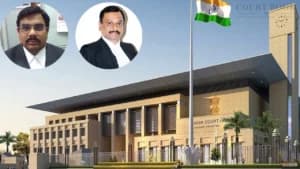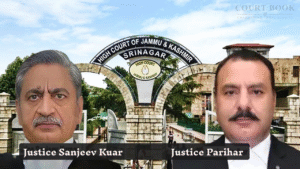In a striking verdict that blends law with social conscience, the Delhi High Court has dismissed a couple's joint plea seeking to declare their Arya Samaj marriage "null and void." The court found that the pair - who admitted to marrying only to expedite a UK visa - had attempted to use the legal system for "an ingenious circumvention" of the Hindu Marriage Act (HMA).
A division bench of Justice Anil Kshetarpal and Justice Harish Vaidyanathan Shankar ruled that the Family Court at Saket had rightly refused the petition earlier this year. "Courts cannot lend approval to such devices that undermine the sanctity of the statutory scheme," the bench observed, upholding the lower court’s dismissal.
Background
The appellant, VN, and respondent, DG, had performed a ceremony at the Arya Samaj Mandir, Delhi, on January 30, 2024. A certificate was issued the same day, followed by formal registration at the Shahdara District Magistrate's office on February 2.
But just days later, the couple decided not to go ahead with their planned elaborate wedding on April 20. Claiming that no "Saptapadi" (seven steps before the sacred fire) was performed during the earlier ceremony, both approached the Family Court seeking a declaration that the marriage and certificates were invalid in law.
They argued that the earlier ritual was merely a formality to help the woman obtain a UK spouse visa and not a true marriage.
Court's Observations
The bench took a dim view of what it called a calculated misuse of procedure. Justice Shankar, writing the judgment, noted,
"The petition appears to be a novel and ingenious method devised to circumvent the statutory rigours of the Hindu Marriage Act."
Read also:- Kerala High Court Raps Vigilance Officers for Deleting Key Corruption Charge, Orders Review of Investigation
The court agreed with the Family Court's reasoning that the law recognizes only marriages that have been solemnized - not those claimed to be void because rituals were incomplete. Section 7 of the HMA, which deals with Hindu marriage ceremonies, allows flexibility in customs but does not create a separate category of "non-existent" marriages.
Importantly, the court emphasized that registration cannot replace solemnisation. "A marriage certificate," the bench said, "is merely proof that a valid ceremony has taken place - not proof of marriage itself."
The judges were also critical of the couple's shifting stance. Both had sworn affidavits before the District Magistrate affirming that their marriage had been performed as per Hindu rites. Later, they claimed otherwise.
Citing the doctrine of estoppel, the court said they could not now deny what they had earlier affirmed:
"A person shall not be allowed to say one thing at one time and the opposite of it at another."
Reference to Dolly Rani Case
The couple's counsel relied heavily on the Supreme Court's 2025 ruling in Dolly Rani v. Manish Kumar Chanchal, where the marriage was dissolved after the Court found no valid rites were performed.
However, the Delhi High Court drew a clear line. It clarified that the Supreme Court had invoked its extraordinary powers under Article 142, which allow it to do 'complete justice in unique circumstances - powers not available to High Courts or Family Courts.
Dolly Rani cannot become a routine escape hatch, the bench remarked. It warned against attempts to turn exceptional Supreme Court powers into "a regular means of separation by bypassing the statute."
Court's Disapproval of the 'Visa Marriage'
In unusually candid words, the judges disapproved of the couple's conduct, calling it a "sham marriage executed purely for convenience." The judgment observed:
"To permit marriages to be disavowed in this manner would be to lend this Court’s imprimatur to an act tainted by mala fide. It would invite disbelief in the Indian system of marriage registration worldwide."
The court also flagged the potential global fallout of such practices, noting that many countries rely on Indian marriage certificates for immigration verification. Allowing their casual invalidation could damage India’s credibility in international legal systems.
The Final Decision
Ultimately, the High Court found no evidence to support the couple's claim that the marriage lacked rituals. Neither the priest who performed the ceremony nor any witness was examined. The judges held that the presumption of a valid marriage remained unrebutted.
In its concluding remarks, the bench said:
"Both the petition before the Family Court and the present appeal are the product of sheer ingenuity and a misguided attempt to turn settled law on its head."
The appeal was dismissed in its entirety, with no order as to costs.
Case: VN v. DG, MAT.APP.(F.C.) 222/2025
Decision Date: October 9, 2025















